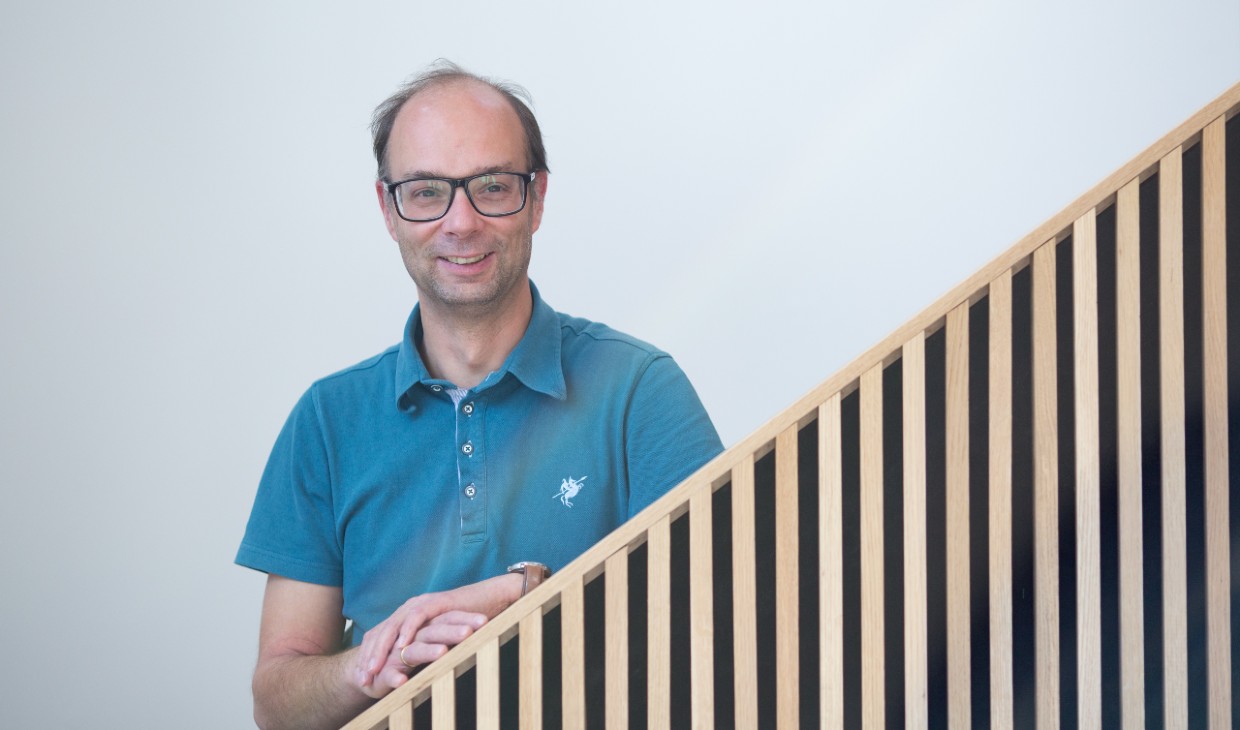The University of Stirling has welcomed its first cohort of students to its flagship graduate apprenticeship programme.
Nineteen students have started studying towards a BSc Graduate Apprenticeship in Data Science – allowing them to benefit from both high-quality teaching and work-based learning.
The course has been introduced at a critical time for Scotland's economic recovery and reflects the University's ongoing commitment to supporting businesses.
Programme Director Dr Mario Kolberg said: “We are delighted at the response to the launch of our BSc Graduate Apprenticeship in Data Science, and we welcome those students who have joined us.
“The COVID-19 pandemic has caused significant disruption and posed an enormous number of challenges to businesses across the world, including here in Scotland. University of Stirling graduates will play a key role in supporting the recovery and this new programme provides a new route into education for many, while offering employers opportunities to upskill existing or attract new talent.
“The launch of our new Graduate Apprenticeship Data Science programme is timely and will upskill and develop apprentices in the workplace, ready to make a positive impact in their company and the Scottish economy.”

Dr Mario Kolberg says the new graduate apprenticeship programme will benefit the Scottish economy.
Graduate apprenticeships were introduced by the Scottish Government to enhance workforce skills through graduate-level qualifications. The programme was developed by Skills Development Scotland, in partnership with industry and the education sector, to provide work-based learning opportunities and a new route into degree-level study for individuals who are currently employed, or seek to go straight into work.
Apprentices work for their employer while studying and develop their skills at university – and work undertaken for the employer contributes to their qualification.
From an employer's perspective, the approach provides an attractive and cost effective route for organisations to upskill their existing workforce, or recruit motivated new talent.
Problem solving
While some universities deferred the start date of their graduate apprenticeship programmes due to the pandemic, the University of Stirling launched as planned in September. The BSc Graduate Apprenticeship in Data Science will see apprentices spend 80 percent of their four-year course in the workplace and 20 percent engaged in study. They will learn how to collect, manage and analyse fast-moving data for science or commerce, while solving problems unique to their own organisation.
Organisations involved in the first intake of students include the Scottish Fire and Rescue Service, the Student Loans Company, Aqualife, Abellio, and a number of local authorities. In further commitment to the programme, the University is developing the skills of two staff members through this course.
Kristian Clezy, Head of Engineering at Aqualife, said: “Aqualife got involved in the graduate apprenticeship scheme to realise a cost efficient way to implement a data science function within the team.
“A combination of good communication with the University of Stirling and a very capable candidate has led to an extremely positive experience so far. I look forward to the next few years to come.”
Adrienne Gardner, Project and Process Manager at Abellio, said: “The value of apprenticeships to both employers and individuals is enormous. Investing in employees, whilst allowing them the time to invest in themselves is a win/win for any organisation.
“The structured learning and support offered through apprenticeships enables individuals to balance work and study whilst also being able to put new skills in to practice. For organisations serious about building capability in their workforce, I can’t recommend apprenticeships highly enough.”
Student Andy Muirhead, who works for the Student Loans Company while studying at Stirling, said: “The course is an incredible opportunity. For people like me, who feel more ready for education at an older age this program is ideal – a second chance at education at a time in my life where I feel more capable and this is the reason why I applied.
“My experience so far has been very positive. Getting back into education has helped me to again to find satisfaction in the pursuit of knowledge. I was initially nervous about everything being online but so far it has gone well and I'm looking forward to attending the campus in the coming years.”
For a discussion about how graduate apprenticeships could benefit your organisation, please email Fiona McMillan via stirgradapprenticeships@stir.ac.uk.

